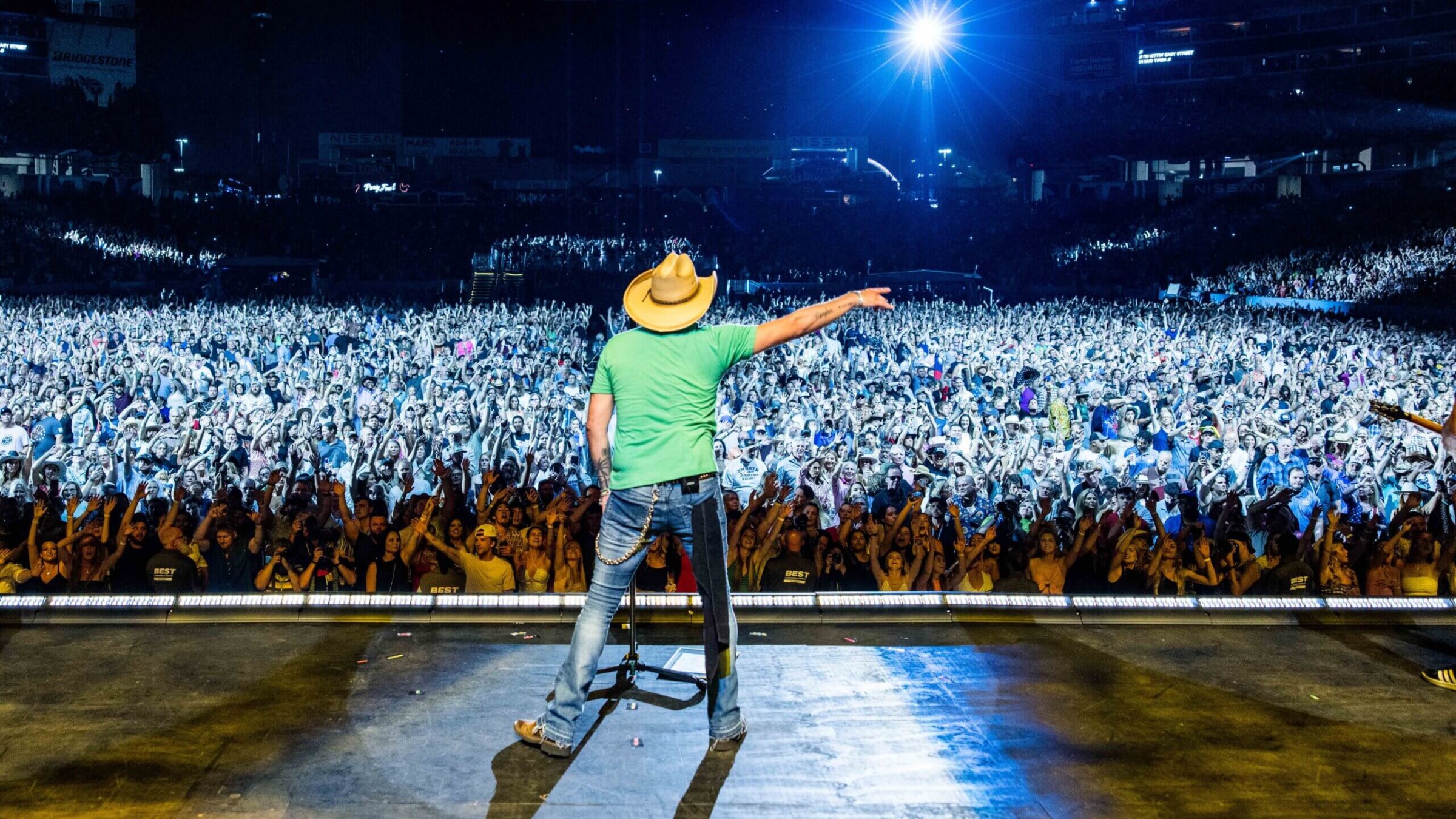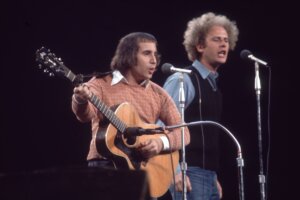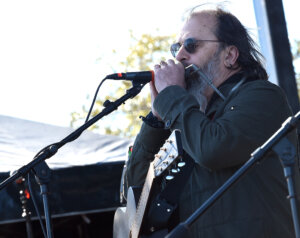Why mean-spirited songwriter Jason Aldean should take a lesson from Paul Simon and Bob Dylan
Aldean isn’t the first to sing the praises of small towns, just one of the most xenophobic

Jason Aldean performs at the 2023 CMA Fest in Nashville. Photo by Getty Images
The latest hit song by country music star Jason Aldean, “Try That in a Small Town,” sparked controversy after its release in May, with lyrics seemingly supporting small-town militias dispensing vigilante justice against urbanites bringing their big-city ways — including, in his nightmarish fantasy world, carjacking, armed robbery, and flag-burning — to rural America.
“That shit might fly in the city,” he sings. “Well, try that in a small town.” It became a No. 1 hit on iTunes’ country music chart.
This past weekend, Aldean poured fueled on the fire surrounding the song with the release of a reprehensible music video filmed in front of the Maury County Courthouse in Columbia, Tennessee, where a white mob lynched an 18-year-old Black man, Henry Choate, in 1927. The blowback against the video, which contextualizes the song primarily with images of urban violence and political demonstrations, led Country Music Television to cease airing it on Monday.
No explanation was offered for CMT’s action. But it is easy to see how the portrait it paints of hatred of urban outsiders and its ties to the violent oppression of Black people made its continual airing on the network untenable. The song’s promotional video is an illustration of Donald Trump’s vision of cities as sites of “American carnage.” One could easily imagine Trump bringing the song and video along with him on the campaign trail, especially when he travels to the heartland towns the song supposedly speaks for.
Aldean himself is no product of small-town America — he grew up in Macon, Georgia, population nearly half a million. Perhaps that is why Aldean did not write the song; it took four Nashville songwriters — Kelley Lovelace, Neil Thrasher, Tully Kennedy and Kurt Allison — to come up with lines like, “Stomp on the flag and light it up / Yeah, ya think you’re tough.” At least Merle Haggard knew how to rhyme.
But Aldean chose to sing the number, which emphasizes the mean-spiritedness and xenophobia afflicting segments of rural America. The song hails a place “full of good ol’ boys raised up right / If you’re looking for a fight.” He warns outsiders against setting foot in these places: “See how far ya make it down the road / Around here, we take care of our own / You cross that line, it won’t take long / For you to find out, I recommend you don’t.” And in case the listener is not taking him seriously, he warns, “Got a gun that my granddad gave me.”

This is not the first time a portrait of small-town America has mentioned guns. In Simon and Garfunkel’s 1975 hit, “My Little Town,” songwriter Paul Simon zeroes in on an anonymous inhabitant of a small town who saves his money, dreams of glory, while he is “Twitching like a finger on a trigger of a gun.” Simon meant this metaphorically, as a description of the emptiness of rural American culture, where “everything’s the same” and where there is “nothing but the dead and dying back in my little town,” and where the desire to leave is explosive.
As its title indicates, Bruce Springsteen’s 1986 hit “My Hometown” is an ode to small-town origins. Springsteen’s is one-part nostalgic reverie — with scenes of a boy driving around with his father, the latter pointing out the main attractions in “your hometown” — and another part socioeconomic critique of Reagan-era America, where Main Streets across the land are vacant and shuttered and factories and mills have closed down. The Boss also introduces a gun in a scene from 1965, when the town was afflicted by fights “between the black and white.” One Saturday night, “Words were passed in a shotgun blast / Troubled times had come to my hometown.” Note how Springsteen elides the question of who fired the gun, the ambiguity serving to keep the song’s focus on the destructive nature of late-stage capitalism.

Country-rock singer-songwriter Steve Earle’s 1986 single, “Someday,” functions similarly, contrasting the grim reality of small-town life and its lack of economic opportunities with the idealism embedded in dreams of escape when he sings, “I wanna know what’s over that rainbow / I’m gonna get out of here someday.” In his 1985 Top 10 hit “Small Town,” rocker John Mellencamp proved one can be a booster of small-town life without resenting its opposite. “Got nothing against a big town / Still hayseed enough to say,” he sings.
Way back in 1963, Bob Dylan, at the time a champion of the New Left and a one-man factory of civil-rights ballads, wrote “Only a Pawn in Their Game.” Ostensibly about the assassination of civil-rights activist Medgar Evers, the song opens with an expression of horror over his killing, before expressing sympathy with poor rural whites who in his view lived in a world where they were constantly manipulated, spoon-fed a culture of white resentment by “deputy sheriffs, the soldiers, the governors … the marshals and cops.” Digging deep into the causes of small-town hatred, Dylan finds a victim who is “taught how to walk in a pack / Shoot in the back / With his fist in a clinch / To hang and to lynch / To hide ’neath the hood / To kill with no pain / Like a dog on a chain / He ain’t got no name / But it ain’t him to blame / He’s only a pawn in their game.”
Nobody expects Jason Aldean to write as politically and poetically as complex a song as Dylan did; no one is nominating Aldean for a Nobel Prize for Literature any time soon. But any modern singer or songwriter worth their salt could learn a few lessons by studying the work of precursors like Dylan, Paul Simon, Bruce Springsteen, and Steve Earle. Certainly Henry Choate’s tragic story is worthy of a song along the lines “Strange Fruit,” written in 1937 by Bronx schoolteacher Abel Meeropol, the son of Russian-Jewish immigrants, and popularized by Billie Holiday two years later.
Writing in Variety, columnist Chris Willman says that Jason Aldean’s “Try That in a Small Town” is “close to being the most cynical song ever written about the implicit moral superiority of having a limited number of neighbors. … At least most of the other [small-town songs] put up the appearance of celebrating local pride, not prejudice.”
Willman continues, “But for Aldean, it’s about how tiny bugs are under the imminent threat of attack from lawless urban marauders who will have to be kept at bay by any means necessary — meaning, pretty explicitly, vigilantism.” Willman also points out that “the prime bogeymen” of the videos are political demonstrators exercising their right to free speech and assembly. As we are growing all too aware, the Second Amendment takes priority over the First Amendment for a significant proportion of Americans.
Apparently even Aldean isn’t immune to the heat surrounding his provocative tune — he had to cut short a concert last Saturday night, claiming dehydration and heat exhaustion.























